Special meeting in Cortona
Early this morning we left via a winding, poorly maintained road (as is normal in Italy) to the Etruscan town of Cortona, situated on a mountain. Early, because it will be over 35 degrees today and we want to be assured of a parking space in the shade. At 10:30 all these parking spaces, but also those in the sun, were already occupied and after a long search I find a spot steeply downhill after a 180 degree turn. How to leave from here is a concern for later, if necessary quickly down the mountain.
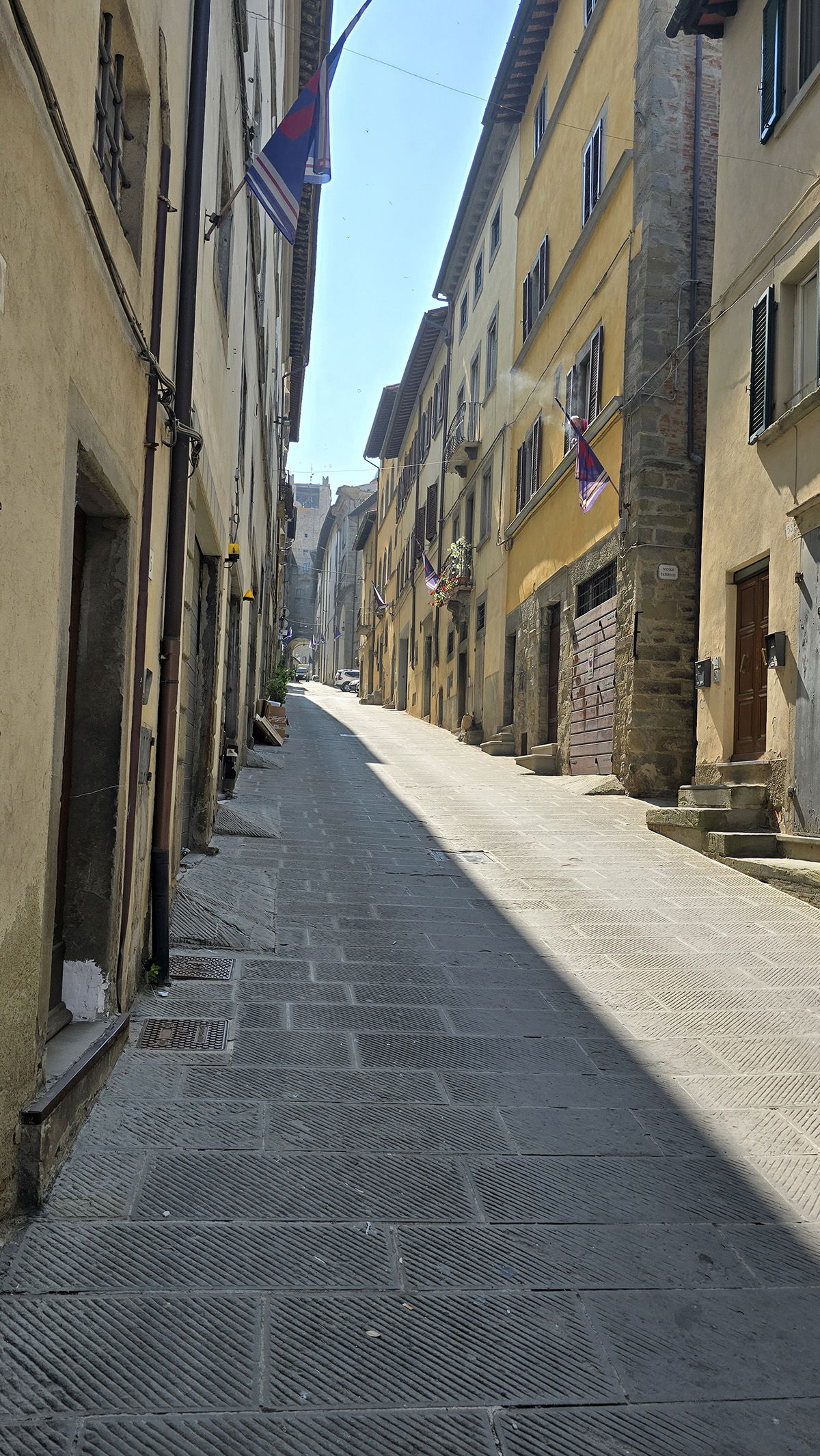
Cortona was founded on one of the earliest inhabited mountains of the province of Arezzo, in the Italian region of Tuscany and with its relief-rich streets is comparable to cities such as Assisi and Volterra. The walk in this town is quite a challenge and certainly for my sweetheart because the road goes straight uphill from the entrance gate, while you have to watch out for cars of locals that thunder down at quite a speed. However, when we arrive at the top we are rewarded with the beautiful square “Piazza della Republica” where it is very busy and where we enjoy due cappuccini with croissants on a terrace in the shade in one of the streets.
While walking and enjoying everything there is to see in this town I look for a piece of grass where the dogs can do their business. Yes, we have taught our Italians not to do this on the cobblestones and I am forced to walk a bit down the mountain from Piazza Garibaldi while I leave Saskia in the shade in the shopping street. From this square you have beautiful views over the Tuscan landscape, from the Val di Chiana with the extinct volcano Monte Amiata to Lago Trasimeno and Montepulciano.
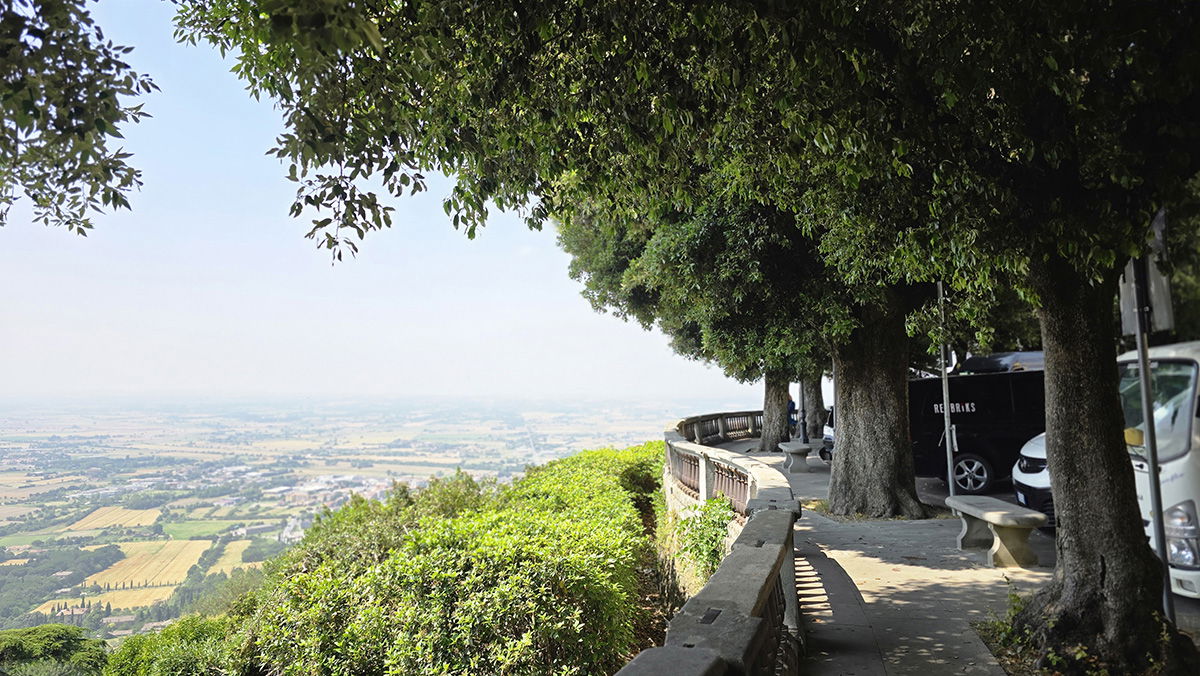
In passing I buy a beautiful brown leather backpack and when I hear the price I look carefully and then get a ten percent discount. In this bag I can take food, water, food bowls, poop bags and tissues and more on my walks so that I have my hands free for two times more than thirty kilos of dog pulling power, because our Italians are fed up with the yapping of those little dogs, even here wearing dresses.
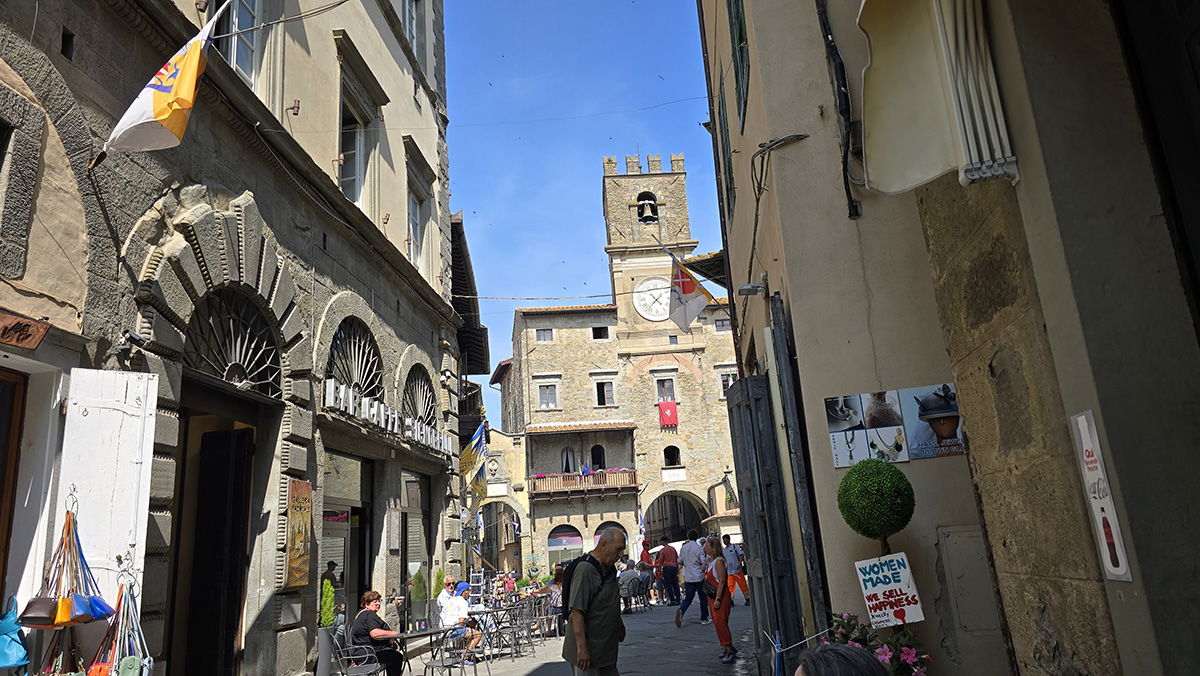
We have lunch at Antica Trattoria on the Piazza Luca Signorelli opposite the Teatro Signorelli where you can enjoy watching the calmly walking locals and slightly less calmly walking and looking around tourists of all nationalities. Like everywhere we go in Italy, we are also asked about the breed of our dogs, people want to have their picture taken with them and these pictures are now probably hanging on the wall in China, Japan and other countries. Incidentally, we are surprised that even Italians ask what breed our Italian Bracchi is. Here these dogs are used for bird hunting and they often live in kennels behind the houses.
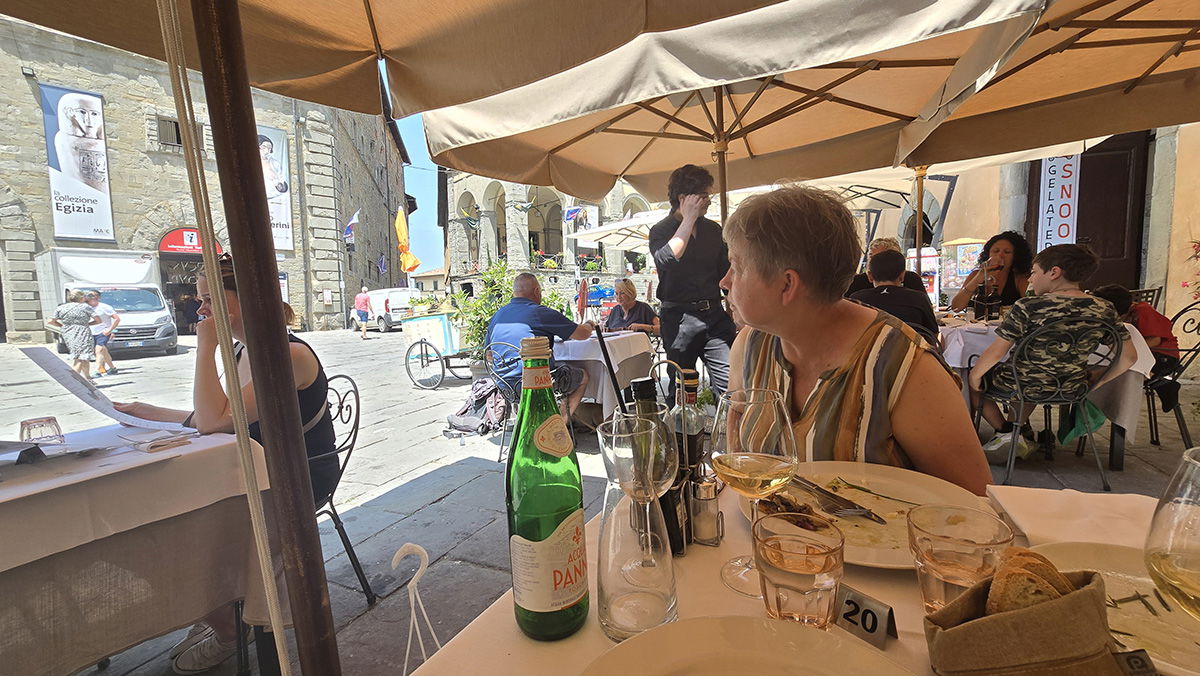
The end of the lunch brings a surprising and emotional turn. Two tables away from us, a couple is sitting and asking about the breed of our dogs. They turn out to be Dutch people from Laren, who have owned an estate called “Todiolo” in the medieval town of Castiglion Fiorentino for thirty years. They also rent apartments, but only to people they know well and they hope to get to know us better. As the conversation progresses, Mrs. Spetter tells us that her husband lays stolpersteine. These are memorial stones or stumbling stones in the pavement that display the names and life details of victims of the Nazis who were expelled, deported or murdered. A similar stone, as I describe in the story “Unknown Children” about my friend Jos Frankfoorder.
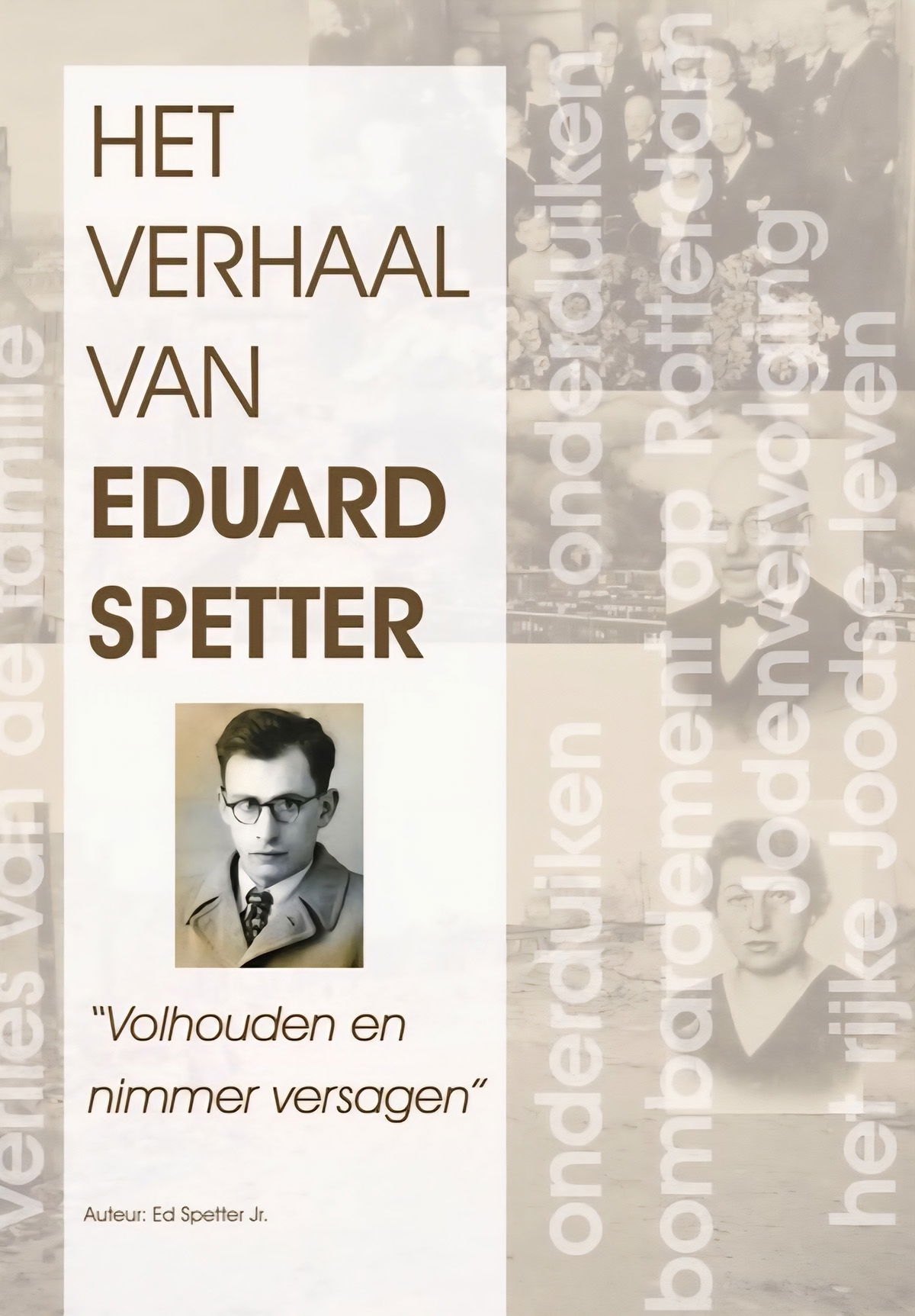
Ed tells us that he has already laid more than 90 Stolpersteinen and is going to lay another 100 stones. When I tell him my story about Jos, I burst into tears and Ed tells us that only two of his family members survived the war. He wrote a book about it called “Volhouden en nimmer versagen” https://www.to-taalboekrecensies.nl/het-verhaal-van-eduard-spetter/
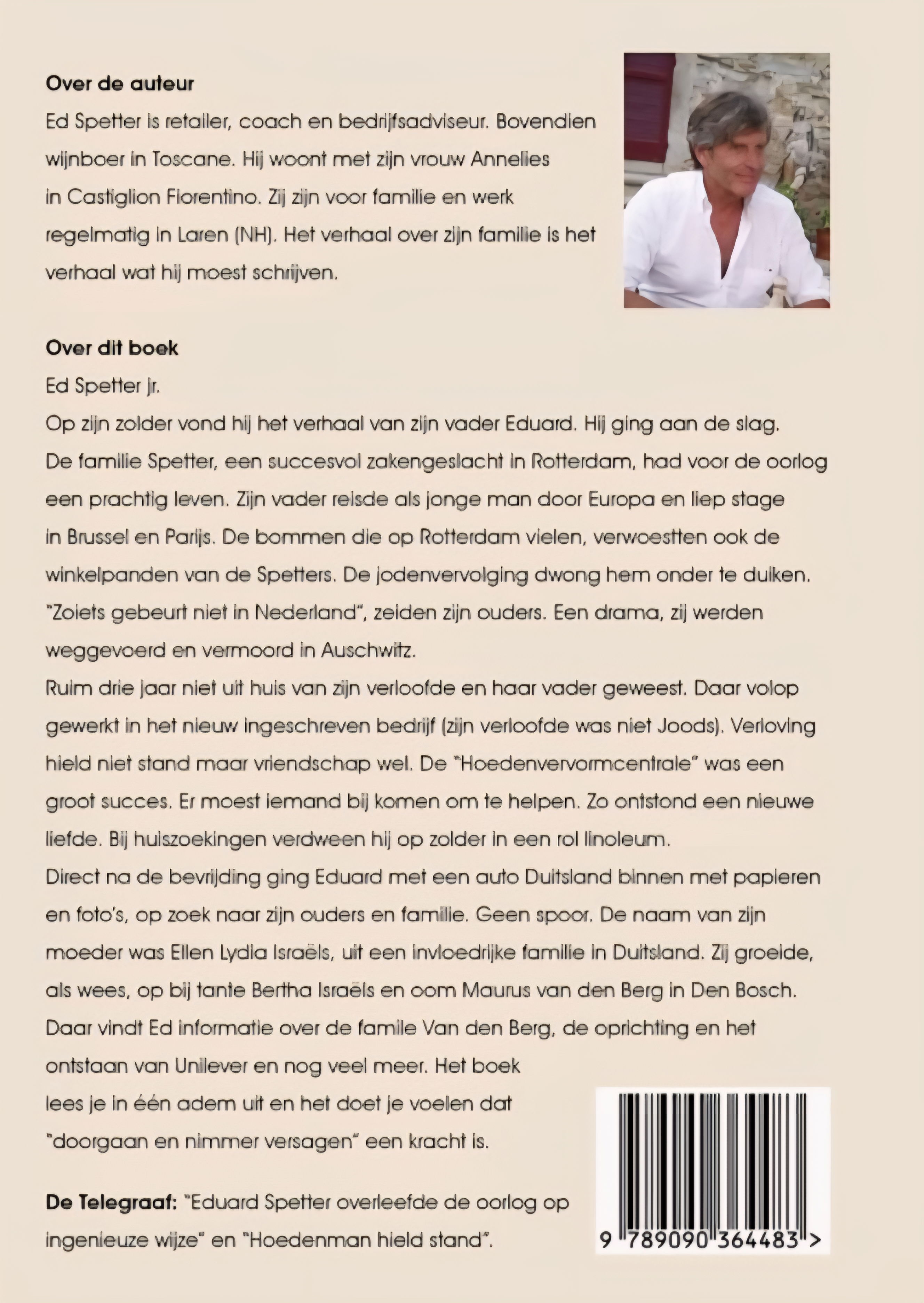
Ed is going to read my story and will definitely respond and with a probability bordering on certainty we will see each other.
When we say goodbye we look each other deeply in the eyes, shake hands and Annelies says, maybe we can go for a walk together sometime. We are in the Netherlands one month and in Italy the next.
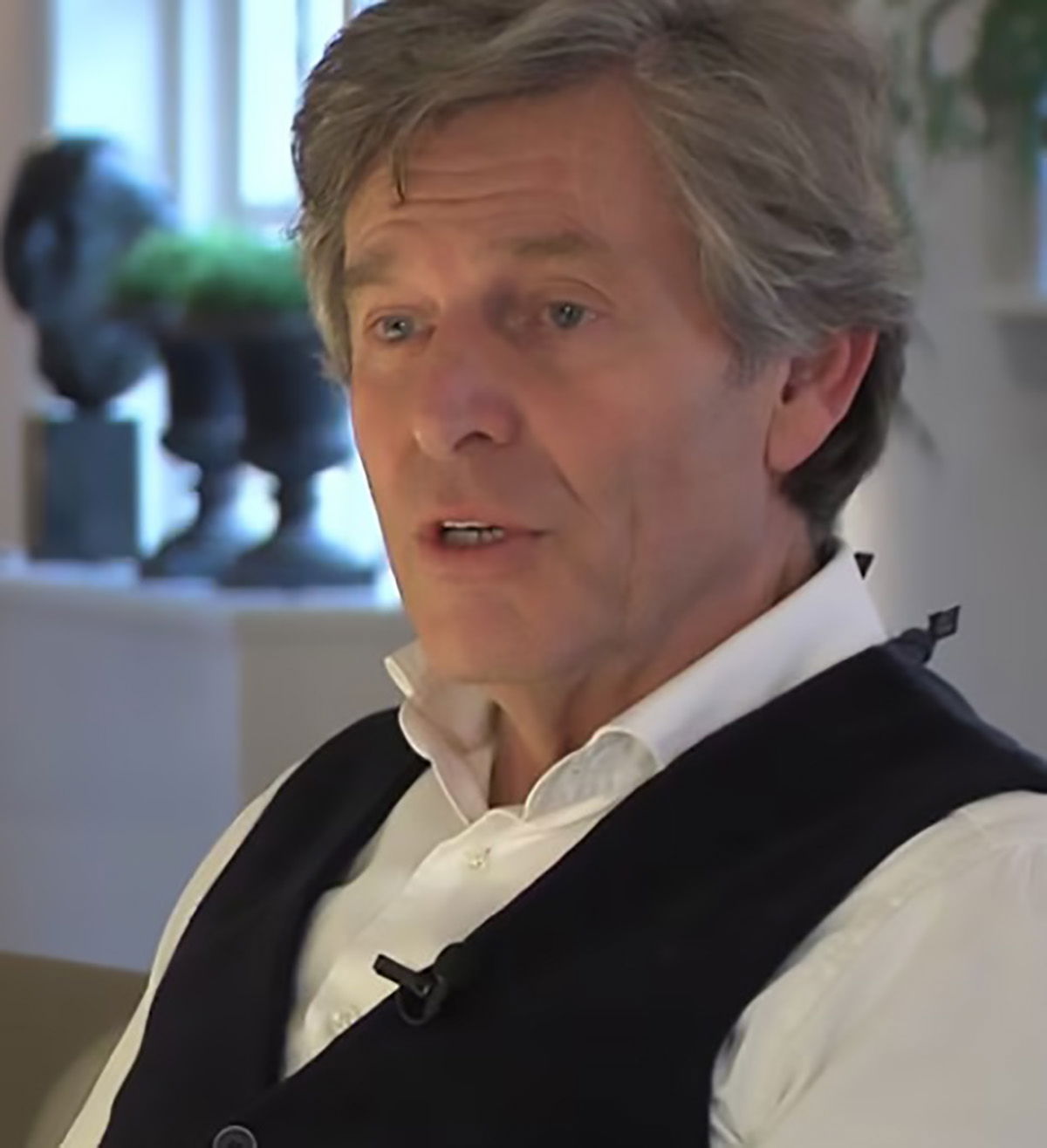
I feel a friendship has been born.
Arnie Della Rosa